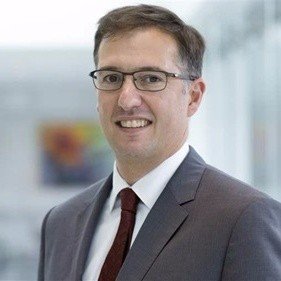
Who We Are
-
Founder & Board Chair
John E. Wetzel is a dynamic and accomplished leader in the realm of corrections, community engagement, community safety, and criminal justice reform.
Born and raised in the heart of Pennsylvania, John’s journey from a small-town dreamer to a nationally recognized advocate for transformative change is nothing short of remarkable. Indeed, John served as the Secretary of the Pennsylvania Department of Corrections, under both a Republican and Democratic Governor, and is the longest-serving Corrections Secretary in Pennsylvania’s history.Educated in criminal justice and administration, John’s professional journey began in the early 1990s, when he cut his teeth working in various capacities within the correctional system. His pragmatic approach and commitment to innovation quickly set him apart. Rising through the ranks, he became a trailblazer, challenging the conventional norms that had long defined the correctional landscape, becoming warden in Franklin County at the age of 32.
John became Secretary of Corrections in 2011 and ushered in an era of innovation and evidence-based practices. His tenure was characterized by a comprehensive vision that sought to collect and utilize data and address the complex issues surrounding incarceration. Under his leadership, Pennsylvania’s correctional system underwent a paradigm shift, emphasizing rehabilitation, education, and reintegration. All the while, John insisted and ensured that the Department was committed to victims’ rights.
One of John’s key contributions was his dedication to education within the prison system. Recognizing the transformative power of learning, he championed initiatives to expand educational programs behind bars, offering inmates a chance to acquire skills that would significantly enhance their prospects upon release. Through partnerships with educational institutions, vocational training programs flourished, contributing to reduced recidivism rates and fostering a sense of hope among the incarcerated.
In addition to educational reforms, John spearheaded efforts to modernize correctional facilities, integrating technology and data-driven approaches to enhance safety and security. His administration prioritized transparency and accountability, implementing measures to track and address issues related to inmate welfare, staff professionalism, and overall system efficiency.
While he approached his role with a commitment to systemic change, John also understood the importance of individual stories. He personally engaged with inmates, listened to their concerns, and celebrated their successes, embodying a compassionate leadership style that resonated throughout the Pennsylvania Department of Corrections. John has always understood that justice, fairness, and community safety wear no party labels. Instead, discipline, integrity, an appreciation for data and best practices, and a commitment to making positive systematic change are what lead to meaningful and tangible improvements, both within and outside of correctional systems.
Having reduced the footprint of corrections in Pennsylvania, our communities, having put into place an understanding of the upstream factors that drive criminal behavior, having changed the culture at Pennsylvania’s correctional institutions, having worked with a variety of legislators in both parties and stakeholders representing a variety of interests, John is uniquely positioned to know that our correctional and justice systems are still plagued by significant and detrimental gaps, gaps that too often result in destructive outcomes in our communities.
-
Executive Director
Greg Rowe is the executive director of KRJC. In that capacity, Greg oversees the administration, oversight and planning of KRJC.
Greg has extensive criminal justice and public safety experience on the local, state, and federal levels. Greg spent nearly 14 years working with and for the Pennsylvania District Attorneys Association, most recently as its Executive Director, where he led and directed all aspects of the Association. He previously served as its Director of Legislation and Policy, where he developed and implemented the Association’s legislative and policy agenda. Greg also served as the Chief of the Legislation and Policy Unit in the Philadelphia District Attorney’s Office. In these roles, Greg has been extensively involved in many important legislative and policy initiatives, initiatives which focused on helping the most vulnerable victims, addressing the opioid crisis, and enacting meaningful criminal justice reforms. Some of these achievements included:
strangulation and sexual extortion laws to protect victims of domestic violence and sexual assault;
expansion of rape shield and tender years laws to help the most vulnerable testify in court;
data-driven Justice Reinvestment Initiative to reduce recidivism and reinvest cost savings;
first-in-the-nation Clean Slate automatic record sealing law to provide second chances to those with criminal records;
good Samaritan law to allow individuals to call 911 to report an overdose without fear of prosecution; and
decriminalization of fentanyl test strips.
Greg regularly collaborated with representatives from victim services organizations, the courts, academic practitioners, law enforcement and other governmental agencies, and criminal justice reform organizations. In addition to teaching continuing legal education courses on newly enacted laws to law enforcement, Greg coordinated and implemented a new training series for the Association on issues related to procedural justice, including topics on implicit bias, diversion, community engagement, and reentry, and utilizing criminal justice data.
Before working with PDAA, Greg served as Governor Rendell’s Senior Policy Manager for Public Safety and as Special Assistant for Criminal Justice. In these positions, Greg oversaw Pennsylvania’s public safety functions with regard to policy, legislation, and operations and was the Governor’s day-to-day contact for Pennsylvania’s State Police, Department of Corrections, Board of Probation and Parole, and Commission on Crime and Delinquency. Greg also practiced commercial litigation for several years and began his legal career in the Appeals Unit of the Philadelphia District Attorney’s Office.
Greg has worked with the National Governors Association, the Council of State Governments, and the PEW Center on the States to help officials from other states learn about successful strategies to reduce recidivism. Greg was also selected as a participant in the Kennedy School of Government’s Executive Session for State Court Leaders in the 21st Century.
Greg was named to City & State’s 2022 “Pennsylvania Law Power 100,” which takes an in-depth look at the district attorneys, federal prosecutors, white-collar defense attorneys, public interest lawyers, law school deans and bar association leaders who are shaping the direction of the state politically, legally and otherwise.
Before attending law school, Greg was a research assistant to the late Senator Daniel Patrick Moynihan and helped coordinate public safety issues for the Senator.
Greg holds a J.D. from the University of Wisconsin, and an A.B. from Harvard College. Greg lives in Philadelphia with his wife and their daughter.
-
Vice President of Research, Policy and Innovation
Maddie brings nearly a decade of experience in public service and non-profits, specializing in criminal justice research & evaluation, public policy, and legislative affairs. Previously, Maddie served the Pennsylvania Department of Corrections (PADOC) as a Senior Policy Analyst, where she implemented statewide correctional programs and oversaw special projects, including the Juvenile Lifer Initiative and Second Chance Pell project. Additionally, as a Project Coordinator for the International Association of Chiefs of Police (IACP), Maddie's team managed an international "model policy" shop, which developed, updated, and provided law enforcement agencies with best practices from the field. She was also the sole support staff assigned to the Executive Office to support legislative affairs, representing IACP at Congressional events, the White House, and as a member of a coalition of public safety associations.
Maddie's career focus is to develop, promote, and evaluate public safety programs that aim to reduce recidivism through the support of justice-involved people. Coming up under John Wetzel at PADOC, Maddie has been trained to "think big" when it comes to potential solutions to community safety challenges. One aspect of her role at KRJC is to provide the evidentiary basis for new approaches that can be "disruptively innovative" in corrections and criminal justice.
In her own research, Maddie is interested in the intersection of justice practices and the experiences of people. With a preference for mixed methods research, she sees the integration of justice stakeholders' subjective experiences with quantitative evidence as the best recipe for designing and implementing sustainable crime policy and legislation.
Maddie has a Master of Science in Justice, Law & Criminology, concentrated in Justice & Public Policy, from American University. She has also completed doctoral-level coursework in the Department of Criminology, Law, & Society at George Mason University, where she has conducted research for the Early Justice Strategies Lab (EJS Lab), the Center for Advancing Correctional Excellence (ACE!), and the Center for Evidence-Based Crime Policy (CEBCP).
-
Senior Vice-President for Projects and Partnerships
Mike Thompson has spent nearly 30 years leading and advising nonprofit, government, and philanthropic organizations. Since 2022, he has worked independently as a consultant to large, national foundations and individual donors starting new philanthropic initiatives. Other clients include national membership associations, academic institutions, nonprofit organizations, and leaders in state and local government across the U.S. Each of these clients has sought Mike’s expertise in designing and executing successful strategies to influence policy at the local, state, and federal levels.
Before he launched his consulting business, Mike was a senior vice president at the Pew Charitable Trusts. Over five years, he oversaw much of Pew’s domestic policy work, designing new initiatives on a broad range of topics, including housing, mental health, public health, and state fiscal policy.
Before Pew, Mike worked for 20 years at the Council of State Governments. At CSG, Mike founded the Justice Center, where Republicans and Democrats relied on his team’s analysis of data and their front-line experience working in policing, courts, corrections, health, victim services, and other systems. His efforts generated groundbreaking research, unprecedented bipartisan coalitions, and the passage of state and federal laws that have transformed criminal justice policy in the US.
Mike has been quoted extensively in the national and local media and testified frequently before the U.S. Congress. He has spent extensive time in most state capitols, presenting on countless occasions to governors, state legislators, judges, and other leaders. Mike received his BA from Middlebury College. He is fluent in Spanish.




